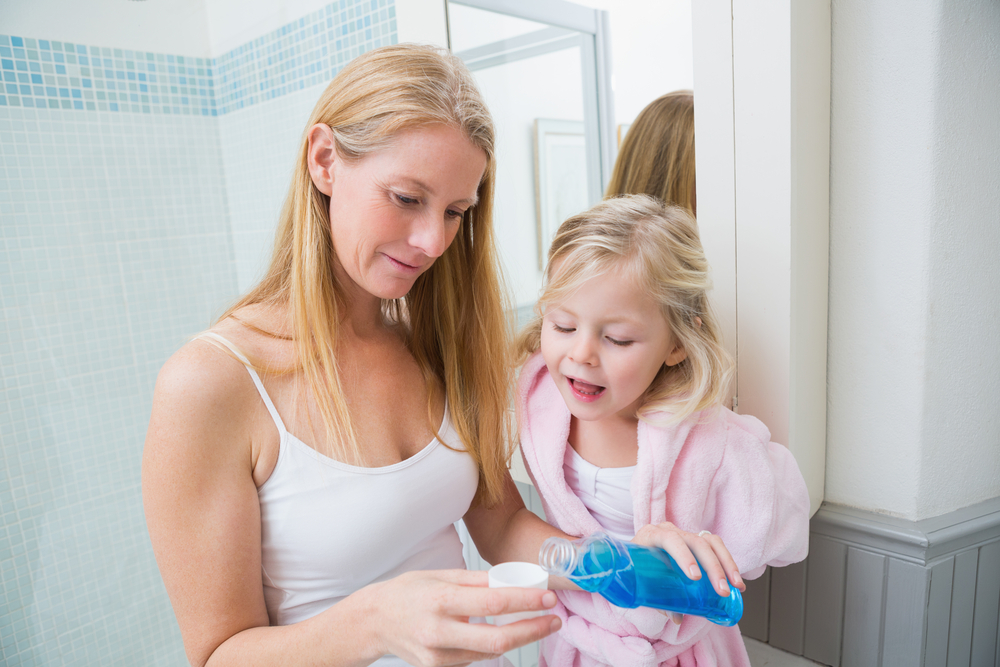Are Cavities and Tooth Decay the Same Thing?
As dental professionals, we know there can be a lot of confusion when it comes to dental terminology. You’ve probably heard us talk about “tooth decay” one minute and then...

As a parent, one of the most important things you can teach your children is how to take great care of their teeth and gums. Children who maintain excellent oral hygiene are proven to have fewer cavities and less anxiety regarding routine dental cleanings and exams.
There are a few extra things you can do to help keep your kid’s mouths cavity-free, in addition to ensuring their teeth are properly brushed and flossed. Incorporating a mouthwash is one of the easiest ways to give developing teeth the boost they need to stay healthy for life.
Different mouthwashes have various benefits, like preventing tooth decay, reducing plaque, freshening breath, and reducing and preventing gingivitis. Finding the correct type of mouthwash that’s safe for your kids to use is incredibly important. A gentle mouthwash can help to keep kids teeth and gums healthy, but it’s essential to help your kids use mouthwash safely by following these simple guidelines:
Age Matters. The American Dental Association (ADA) suggests that you don’t start using mouthwash too early and that children younger than six years old shouldn’t be using a rinse. Young children tend to swallow rinses, and ingesting too much can lead to enamel discoloration – also known as fluorosis.
Always Rinse Supervised. If your child is over the suggested age of six, always supervise your child while using the mouthwash to ensure they measure the proper amount. Explain to them that mouthwashes are not to be swallowed – not even a tiny amount!
Rinses Don’t Replace Brushing. Make sure your kids know that rinsing your mouth with mouthwash doesn’t replace brushing and flossing.
Safely Storing. Mouthwash should always be stored out of reach of young children. Because of the bright color and fun flavor, it’s likely your kids will be curious about this fun, new liquid, and you don’t want them to think it’s a tasty treat.
There are several types of mouthwash you can find at any oral hygiene aisle that are designed specifically for children. These rinses are typically alcohol-free and come in flavors that appeal to kids like bubblegum, wild berry, and grape. Mouthwashes specifically designed for children are typically easier on their susceptible mouths than a standard cosmetic mouthwash that an adult would use. If you’re introducing a mouthwash to your child for the first time, try one specifically designed for them and work up into an adult-friendly minty rinse.
If you’d like to find a rinse for your child that isn’t a fruity flavor, look for a mouthwash containing no alcohol and a therapeutic rinse that helps prevent cavities with ingredients like fluoride.
Help your kids maintain a healthy smile by making dental hygiene fun for them. Making brushing, flossing, and dental check-ups a positive experience can help keep your child excited about their smile and helps to establish healthy habits that they can benefit from throughout their lifetime.
A straightforward way to keep your child interested in daily brushing and flossing is to do it together. Kids look up to their parents and often mimic what they see their parents doing. Set a positive example for your kids by sharing your brushing techniques that include a full two minutes twice a day and helping them with the floss until they’re old enough to do it on their own while you supervise.
Everyone loves getting something new, especially kids! Make it a habit of replacing toothbrushes every three months, and let your child pick their soft-bristled brush with their favorite characters or color.
Your kids should visit the dentist every six months for cleanings and exams, just like adults should. Turn dentist days into a bonding experience by making it a special day you spend together that includes something fun to do together afterward.
If you’d like to know if your child could benefit from using a fluoride rinse, ask Aubrey Baudean DDS what we recommend for your child at their next appointment.